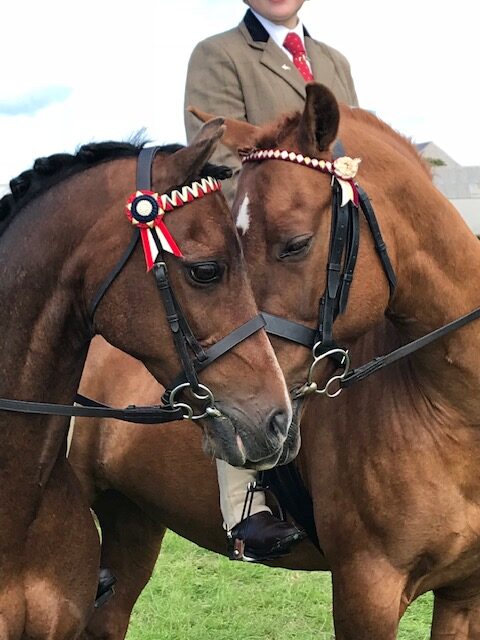It is a current requirement for all horses, ponies and donkeys to have a passport.
Since March 2021 it's now a legal requirement that all horses must be microchipped, as well as having a passport and being registered with a passport issuing authority.
Microchipping of older animals – If you are unsure whether your horse has been microchipped, any of our vets can attend to scan for a microchip and insert one if none is found. The horse's passport must be checked by the vet and updated with the microchip details, and this must then be reported to the passport issuing authority by the owner. If we are seeing your horse for any other reason we can check for a microchip for you at the same time if you ask.
A horse's passport documents their identity, health checks and vaccination records, and should also contain a Medical Treatment Section. We recommend you sign this section declaring that the horse described in it is NOT intended for human consumption. Once this section is signed, there are no restrictions on the medicines that can be administered to your horse beyond the normal drug prescribing cascade. We will note on your horse’s clinical record that this Section has been signed, which will simplify the situation in the unfortunate event of a medical emergency when your horse’s passport may not be available. If the Section is not signed “not intended for human consumption”, if the passport is not available, the horse’s status is not noted on our records, or the identification in the passport doesn’t match the horse’s markings or microchip number, then there are severe restrictions on what medication can be administered to your horse. In particular, bute, or Danilon cannot be given unless the passport is signed “not intended for human consumption”.
The passport should stay with the horse at all times – so be kept at the yard/facility where your horse resides, and accompany the horse should it be transported anywhere. By law, veterinary surgeons may not treat a horse without first seeing its passport, however, in an emergency, if the passport is not available, then we can issue a BEVA Emergency Treatment form.
Once the Medicine Section is signed that a horse will NOT go for human consumption, whether in the passport or on the BEVA Emergency Treatment Form, it is an irreversible decision. If your horse has a passport that predates the Medicine Section, then they are deemed automatically signed “not intended for human consumption”. Likewise, any passport issued to an adult horse will be signed “not intended for human consumption” by the Passport Issuing Organisation.
Passport regulations now require that all horses are microchipped in order to obtain a passport, whether new or replacement. All foals must be microchipped by 31st December of the year of their birth or within 6 months of birth, whichever is the later. The passport is issued to the horse and therefore must accompany it when ownership is transferred. It is illegal to sell a horse without a valid passport and the new owner should contact the relevant Passport Issuing Organisation for official transfer of ownership in the passport within 30 days of acquiring the horse. The passport should be returned to the Passport Issuing Organisation within 30 days of the horse’s demise.


